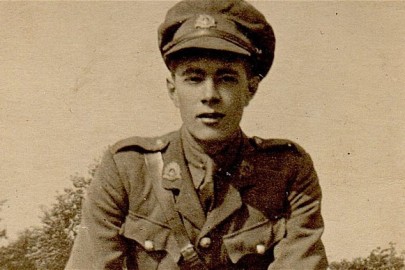
Summer is over and September is here again. Here’s another chance to read Worm’s exploration of how this month has provided an often melancholy inspiration to artists.
By all these lovely tokens
September days are here
With summer’s best of weather
And autumn’s best of cheer.
September is an interesting and unsettling month, and a favourite subject for artists and musicians who wish to draw the easy parallel between the dwindling embers of summer and the melancholy way that tempus seems to fugit.
Richard Strauss was one such artist to grasp September strongly as a metaphor for the dying of the light – most literally in his case, as his lieder September was written only months before his death. Strauss had something of September about him; it could be argued that he was part of the last great flourishing of classical composers and bridged the transition between the sun-dappled uplands of music’s Victorian heyday and the barren winter of discordant modern classical music that was to follow.
The Four Last Songs for soprano and orchestra, of which September is a part, were his final completed works, composed in 1948 when Strauss was 84. They are remarkable, not only for their beauty, but also for the fact that they were made by an octogenarian. Strauss did not live to hear the premiere. His Four Last Songs symbolize the fulfilment of the soul into death; there is no Romantic defiance here; these songs are suffused with a sense of calm, acceptance, and completeness. They constitute the composer’s own requiem – a self-conscious farewell to existence, given loving expression by an idealised soprano voice.
The author Philip Roth, in his Septembery Exit Ghost, suggests the Four Last Songs as the ideal music for a scene his character has written:
Music: Strauss’ Four Last Songs. For the profundity that is achieved not by complexity but by clarity and simplicity. For the purity of the sentiment about death and parting and loss. For the long melodic line spinning out and the female voice soaring and soaring. For the repose and composure and gracefulness and the intense beauty of the soaring. For the ways one is drawn into the tremendous arc of heartbreak. The composer drops all masks and, at the age of eighty-four, stands before you naked. And you dissolve.
The songs are “Frühling” (Spring), “September”, “Beim Schlafengehen” (Going to sleep) and “Im Abendrot” (At sunset). There is no indication that Strauss conceived these songs as a unified set. The overall title and playing order of Four Last Songs was provided by an editor at Boosey & Hawkes.
In my opinion, the greatest version of the Four Last Songs remains the 1973 recording with Gundula Janowitz and Herbert von Karajan. The whole performance seems warmly, wistfully autumnal.
“September”
(Text: Hermann Hesse)
The garden is in mourning.
Cool rain seeps into the flowers.
Summertime shudders,
quietly awaiting his end.Golden leaf after leaf falls
from the tall acacia tree.
Summer smiles, astonished and feeble,
at his dying dream of a garden.For just a while he tarries
beside the roses, yearning for repose.
Slowly he closes
his weary eyes.
And here, just because I love it, is another – the third of the four last songs, “Beim Schlafgehen”, again performed wonderfully by Janowitz and Karajan. The other two lieder are equally great if you want to search them out.
.











Wot – seven o’clock and no comments? For shame!
Seem to remember putting in my five penn’orth a year ago when this touching post first appeared. This time around it put me in mind of the old boy’s dragon missus, the cantankerous, opinionated Pauline de Ahna who, to most observers, conspired to make Strauss’ life hell but, in the event, became a devoted muse and a lifelong inspiration to this very great talent. It is often forgotten that this gentle soul was considered an enfant terrible in his youth, but the truth is that he longed for a bourgeois life, and Pauline was on hand to give him the life he craved. As the ‘screaming skull’ Georg Solti recounts in this short film http://www.youtube.com/watch?v=x1o6D1pTJqc Pauline was ‘totally broken’ by his death, passing herself just a few months later. Moral: however closely you may look at a marriage, you never quite know what might be going on when the front door shuts.
Thanks MM for the YouTube link and the comments- I’ve always found it interesting how connected the biographies of great composers are to their womenfolk